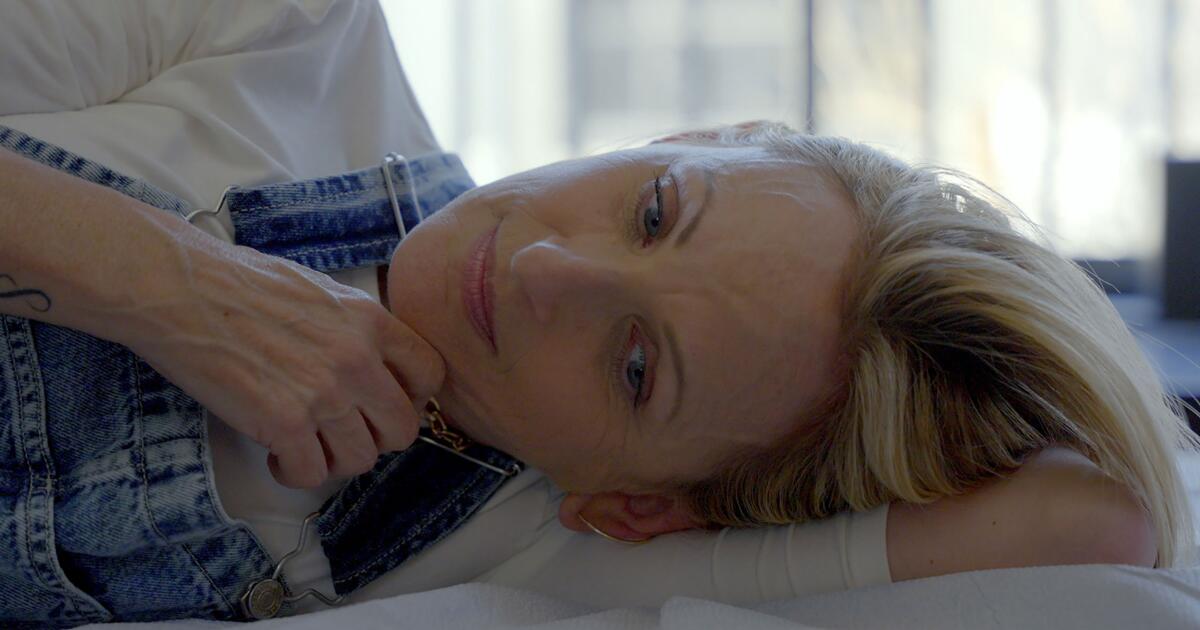Epstein survivors implore Congress to act as push for disclosure builds
WASHINGTON — Survivors of Jeffrey Epstein’s sexual abuse made their voices heard Tuesday on Capitol Hill, pressuring lawmakers to force the release of the sex trafficking investigation into the late financier and pushing back President Trump’s effort to dismiss the issue as a “hoax.”
In a news conference on the Capitol lawn that drew hundreds of supporters and chants of “release the files,” the women shared — some publicly for the first time — how they were lured into Epstein’s abuse by his former girlfriend, Ghislaine Maxwell. They demanded that the Trump administration provide transparency and accountability for what they endured as teenagers.
It was a striking stand as the push for disclosure of the so-called Epstein files reached a pivotal moment in Washington. Lawmakers are battling over how Congress should delve into the Epstein saga while the Republican president, after initially signaling support for transparency on the campaign trail, has been dismissing the matter as a “Democrat hoax.”
“No matter what you do it’s going to keep going,” Trump said Wednesday. He added, “Really, I think it’s enough.”
But the survivors on Capitol Hill, as well as at least one of Trump’s closest allies in Congress, disagreed. Some of the women pleaded for Trump to support their cause.
“It feels like you just want to explode inside because nobody, again, is understanding that this is a real situation. These women are real. We’re here in person,” said Haley Robson, one of the survivors who said she is a registered Republican.
Epstein killed himself in a Manhattan jail while awaiting trial in 2019 on charges that said he sexually abused and trafficked dozens of underage girls. The case was brought more than a decade after he secretly cut a deal with federal prosecutors in Florida to dispose of nearly identical allegations. Epstein was accused of paying underage girls hundreds of dollars in cash for massages and then molesting them.
Maxwell, Epstein’s longtime confidant and former girlfriend, was convicted in 2021 and sentenced to 20 years in prison for luring teenage girls for him to abuse. Four women testified at her trial that they were abused by Epstein as teens in the 1990s and early 2000s at his homes in Florida, New York and New Mexico. The allegations have also spawned dozens of lawsuits.
Georgia Rep. Marjorie Taylor Greene, who is usually closely aligned with Trump, described her support for a bill that would force the Justice Department to release the information it has compiled on Epstein as a moral fight against sexual predation.
“This isn’t one political party or the other. It’s a culmination of everyone work together to silence these women and protect Jeffrey Epstein and his cabal,” Greene said at the news conference.
She is one of four Republicans — three of them women — who have defied House GOP leadership and the White House in an effort to force a vote on their bill. House Speaker Mike Johnson is trying to quash the effort by putting forward his own resolution and arguing that a concurrent investigation by the House Oversight Committee is the best way for Congress to deliver transparency.
“I think the Oversight probe is going to be wide and expansive, and they’re going to follow the truth wherever it leads,” Johnson, R-La., said.
He added that the White House was complying with the committee to release information and that he had spoken with Trump about it Tuesday night. “He says, ‘Get it out there, put it all out there,’” Johnson told reporters.
The Oversight Committee on Tuesday night released what it said was the first tranche of documents and files it has received from the Justice Department on the Epstein case. The folders — posted on Google Drive — contained hundreds of image files of years-old court filings related to Epstein, but contained practically nothing new.
Meanwhile, the White House was warning House members that support for the bill to require the DOJ to release the files would be seen as a hostile act. Rep. Thomas Massie, a Kentucky Republican who is pressing for the bill, said that the White House was sending that message because “They’ve dug in.”
“They decided they don’t want it released,” he said. “It’s a political threat.”
But with Trump sending a strong message and Republican leadership moving forward with an alternative resolution, Massie was left looking for support from at least two more Republicans willing to cross political lines. It would take six GOP members, as well as all House Democrats, to force a vote on their bill. And even if that passes the House, it would still need to pass the Senate and be signed by Trump.
Still, the survivors saw this moment as their best chance in years to gain some justice for what had been done by Epstein, who died in as New York jail cell in 2019 while facing sex trafficking charges.
“Justice and accountability are not favors from the powerful. They are obligations decades overdue” Jess Michaels, a survivor who said she was first abused by Epstein in 1991, told the rally on the Capitol lawn. “This moment began with Epstein’s crimes. But it’s going to be remembered for survivors demanding justice, demanding truth, demanding accountability.”
Groves writes for the Associated Press.

